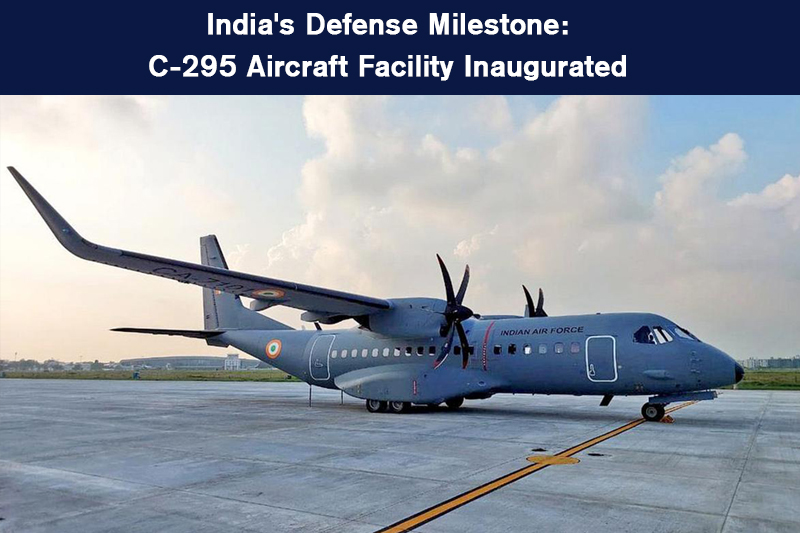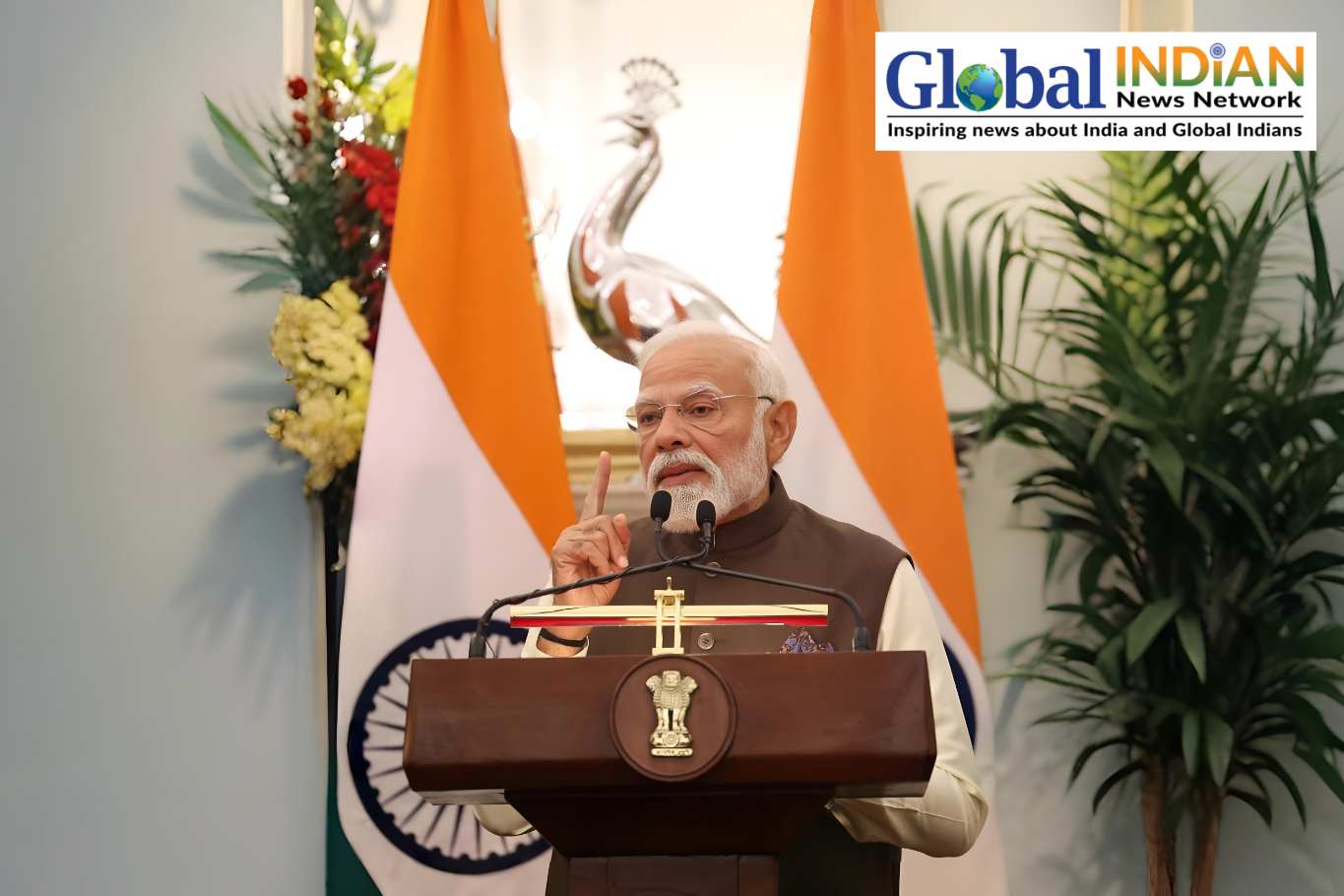 On Monday, Prime Minister Narendra Modi and Spanish Prime Minister Pedro Sanchez jointly inaugurated the Tata Aircraft Complex in Vadodara, Gujarat, marking the establishment of India’s first privately built C-295 aircraft manufacturing facility. This significant development is a key step toward achieving ‘Atmanirbharta’ (self-reliance) in the country’s defence sector.
On Monday, Prime Minister Narendra Modi and Spanish Prime Minister Pedro Sanchez jointly inaugurated the Tata Aircraft Complex in Vadodara, Gujarat, marking the establishment of India’s first privately built C-295 aircraft manufacturing facility. This significant development is a key step toward achieving ‘Atmanirbharta’ (self-reliance) in the country’s defence sector.
In 2021, India’s Ministry of Defense entered into a $2.65 billion agreement with Airbus Defence and Space SA of Spain to procure 56 C-295 transport aircraft, intended to replace the aging Avro-748 planes of the Indian Air Force. Under this contract, 16 aircraft will be delivered fully assembled from Spain, while the remaining 40 will be assembled domestically at the newly established Tata Aircraft Complex. Officials anticipate that the first aircraft produced in Vadodara will be completed by September 2026, with all 40 units scheduled for delivery by August 2031.
Prime Minister Modi emphasized that this factory will not only strengthen India-Spain relations but also support the ‘Make in India, Make for the World’ initiative. He acknowledged the legacy of the late Ratan Tata, expressing confidence that the C-295 aircraft manufactured here will eventually be exported globally.
The C-295 aircraft is recognized for its operational efficiency and versatility. Produced by Airbus, it features a lightweight design that reduces maintenance and operational costs. As a multi-role tactical airlifter, the C-295 is capable of performing various missions, including logistics, rescue operations, and support.
The aircraft’s designation, “C-295,” derives from “C” for CASA, the original manufacturer, “2” representing its two engines, and “95,” which refers to its 9.5-tonne payload capacity. This naming convention highlights its design and performance attributes.
Equipped with a robust Pratt and Whitney Canada PW100 engine, delivering 2,645 hp, and a redesigned wing, the C-295 surpasses its predecessor in performance. The aircraft has demonstrated its combat effectiveness during extensive deployments in challenging regions, such as Chad, Iraq, and Afghanistan. For instance, during an EUFOR mission in Chad, two Spanish Air Force C-295s achieved around 160 flight hours per month over an 11-month period, maintaining an impressive availability rate exceeding 95%.
Furthermore, the C-295 is capable of refueling other aircraft, whether rotary or fixed-wing, with an offloading capacity of up to 6 tons of fuel. The aircraft features a fuel probe that extends its operational range and can function as a tanker for other C-295s or helicopters.









